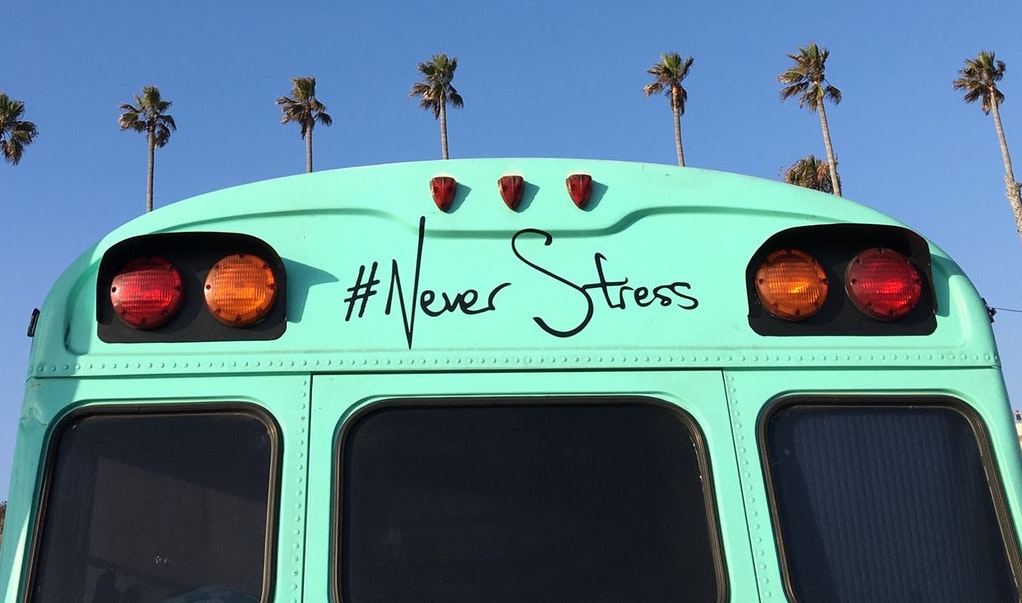
Social Work Stress Management
Social work is among the most stressful professions, experts agree. [...]

Becoming a child therapist is a little bit like making a sandwich—the more time you spend, the better it will be. There are five main careers in child therapy (each with a sandwich comparison). The categories are:
With unique educational commitments and licensing requirements, these careers could not be more different, even though they all present an opportunity to work with children.
So, how long does it take to become a child therapist? This article provides all the estimates you need. It covers:
Child therapist job description
As experts in child development and mental health, child therapists can be defined as “professionals who use therapeutic techniques to improve children’s mental health.” Most child therapists employ psychotherapeutic techniques, though psychiatrists also may prescribe medication.
Psychotherapy is probably one of those words you have a general definition of, but can’t explain. It basically translates to “obtain a license to help people talk about their problems.” Psychotherapy can be used to treat anxiety, depression, autism spectrum disorder, and even trauma.
Some psychotherapy techniques that therapists use include:
Cognitive behavioral therapy (CBT) focuses on negative thoughts, feelings, and behaviors in order to change the negative cognitive distortions associated with them.
Family therapy works with the family unit to address patterns within intimate relationships in order to promote healthy change and growth.
Interpersonal psychotherapy is a tightly scheduled, attachment-focused approach to resolving interpersonal problems in a highly structured format.
Sometimes called parent management training (PMT), parent training in behavior management involves working within the family with an evidence-based treatment approach to effectively manage aggressive, oppositional, and defiant behavior in children and adolescents.
Play therapy uses play activities to help children express their feelings, and allow therapists to communicate through a trusting relationship they are able to develop through the child’s imaginative self-expression.
Child therapists often need more training than their adult therapist counterparts, although both use many of the same techniques. In some instances, child therapy is a specialty certification that can be earned after professional licensure.
Each of the career paths described in this article requires a bachelor’s degree from a four-year institution.
| University and Program Name | Learn More |
|
Merrimack College:
Master of Science in Clinical Mental Health Counseling
|
|
|
Virginia Commonwealth University:
Online Master of Social Work
|
Child psychologists usually start their careers by earning a bachelor’s degree in psychology, though having one is rarely a prerequisite for graduate school admission. Most master’s programs seek well-rounded applicants, so you might gain admission with a bachelor’s degree in social work or even a bachelor’s in education—especially if you want to work with children.
Though not very common, clinical psychologists can occasionally practice with just a master’s degree, provided they have the right license. Usually this means earning either a Master of Science in Applied Psychology or Master of Education in Educational Psychology. More likely, these graduate degree programs will serve as a springboard for your doctoral degree.
There are two kinds of doctoral degrees that psychologists can earn—a Doctor of Philosophy (PhD) in psychology, or a Doctor of Psychology (PsyD).
There is a substantial difference between the two. A PhD prepares graduates for a career in research or teaching (at a graduate school), though they also might offer counseling services—generally in schools or businesses. A PsyD is tailored more for people who want to become psychologists. Make sure your doctoral program is accredited by the American Psychological Association (APA). Not only does accreditation ensure that your education meets the proper standards, but it is usually required for licensure. You can check the accreditation standing of your chosen program on the APA website.
Schools with accredited PsyD programs include:
“The goal of Baylor University’s Doctor of Psychology Program is to develop professional psychologists with the conceptual and clinical competencies necessary to contribute to the science of psychology and deliver psychological services in a manner that is effective and responsive to individual and societal needs both now and in the future.”
“The PsyD program in School-Clinical Child Psychology prepares graduates to be professional psychologists as health service providers with expertise in school and clinical psychology in the context of evidence-based practice.”
“At the University of San Francisco, PsyD students are trained to translate thought into action, through practice-oriented training that emphasizes the mental, emotional, and physical health needs of underserved communities.”
“The mission of the PsyD program is to train doctoral-level practitioner/scholars who have foundational interpersonal and scientific skills, a functional mastery of psychological assessment and intervention, and can apply this knowledge and skill in a range of settings.”
“The APA accredited Doctor of Clinical Psychology (PsyD) educates skilled generalists as Health Service (Clinical) Psychologists who have a solid appreciation of the role of science in all aspects of professional activity.”
So, how long does all of this education take? Bachelor’s degrees are generally conferred in four years, while master’s degrees usually take two or three (if you study full-time). A Doctor of Psychology takes the longest at around five years, though many take longer. Psychologists spend around 12 years in school, not counting any breaks or part-time programs.
There are a few schools, like Loyola University Maryland, that combine the bachelor’s and master’s degree in one program. This significantly cuts down on the time commitment (to around five years) to earn both.
After all this education, it is time to get certified. Each state is in charge of licensing for its own residents, but the APA does list some general guidelines, which include:
State requirements will vary, but generally students should complete 2,000 hours of internship work and another 2,000 hours during postdoc.
Acceptable scoring will vary by state, but most will require a score of at least 70 percent on a 500 question exam.
Fees for applications and testing for licensing can total well over $1,000 and may be double that or more if you include test prep and other costs associated with the process.
Postdoc work experience usually clocks in at around 2,000 hours, but depending on the state this number can be much higher when combined with internships for the total number of required supervised hours.
Being organized during the process will help tremendously later on. Make sure to document information about your internship, postdoc, and doctoral experience in official formats.
Postdocs can be completed in one or two years, depending on whether you are full or part-time. You are paid during a postdoc, but not as much as a psychologist. These programs also are likely the first opportunity you’ll have to earn money as a psychologist, though probably not enough to cover the full cost of school.
The Clinical Child & Adolescent Psychology certification, which demonstrates a psychologist’s expertise in working with children, is available to psychologists who have received “doctoral training in Clinical Child and Adolescent and/or Pediatric Psychology” or have completed at least three years of postdoctoral training. Psychologists have up to a year to take their specialty exam once their application is accepted, though the ABPP claims that six months are all most people need to prepare.
How long will it take you to become a child psychologist? Bank on it taking over ten, and probably over 13 if you need to complete extra training, or want to go back to school to get certified in something like Applied Behavior Analytics (ABA). ABA therapy is another method that psychologists can use to address children’s mental health issues.
Licensed psychologists earn a median income of $82,180 per year, according to the US Bureau of Labor Statistics (BLS). The BLS also states that school psychologists earn an annual mean wage of $79,820. If you have a private practice, the average salary is $123,571 per year, which might help put a dent in those student loans.
Child psychiatrists undergo rigorous training—even more than psychologists—before they can practice. That’s because psychiatrists are medical doctors who can prescribe medication in addition to practicing psychotherapy.
It is best to find an undergraduate school with a respected pre-med major, though you also might focus on psychology or another related field. Most medical schools will still consider your application if you majored in, say, underwater basket-weaving. However, you will need to take the Medical College Admission Test (MCAT) in order to get in. Even students with a heavy science background can spend up to a year studying for the MCAT after completing an undergraduate diploma.
There are a few well-respected med schools that allow students to skip this daunting and exceedingly difficult test, but they have their own strict demands (namely doing very well in undergraduate science courses). A few design admission for these programs at the bachelor’s level, then move admitted students into the MD program. These BS/MD programs include:
“The REMS program is an eight-year bachelor’s of arts or bachelor’s of science and MD program from the University of Rochester School of Medicine and Dentistry. Students enrolled in the program enter the University of Rochester with an assurance of admission to the University of Rochester School of Medicine and Dentistry when they successfully complete their undergraduate degree programs, including GPA and premedical requirements.”
“After meeting the special medical school requirements and deadlines set by this joint program, a select group of entering freshmen are guaranteed admission to medical school at the Texas Tech University Health Sciences Center School of Medicine after completion of a Bachelor’s Degree at TTU.”
“(A)pplicants must earn the highest grade point average available at your high school in the context of a curriculum showing the greatest academic rigor possible. In addition, achieve a minimum SAT score of 1490 (combined Evidence-Based Reading and Writing and Math) or 34 ACT composite score.”
Once you’re in, medical school takes at least four years to complete, and is far more rigorous than any undergraduate degree. Med students complete clinical rotations, in addition to continuing their science education. Highly touted psychiatry programs include:
“The Med-Psych training program prepares physicians for comprehensive and integrated care of patients, particularly complex patients with overlapping medical and psychiatric problems. In addition to providing optimal care for their patients, many of our graduates become leaders in various aspects of designing and implementing innovative healthcare systems.”
“The Department of Psychiatry at Harvard Medical School coordinates the psychiatric resources of seven major teaching institutions dedicated to quality clinical services, innovative research, excellent medical education and comprehensive training.”
“The Residency in Psychiatry and Behavioral Sciences at The Johns Hopkins Hospital is designed to provide a comprehensive and broad-based education in clinical psychiatric diagnosis and treatment.”
“We strive to provide residents with an outstanding and balanced educational experience through emphasizing biological, psychological, and sociocultural aspects of psychiatry.”
“The core of the training program includes experience in inpatient, consultation/liaison, and ambulatory psychiatry at one of the nation’s finest health systems, as well as extensive experience in outpatient psychotherapy, psychopharmacology, and combination treatment.”
After med school, psychiatrists need to complete (at least) a four year residency. You will be able to work in psychiatry during the last two years of your residency. After jumping through all of these hoops, you will be able to apply for a license through your state’s medical board.
Most psychiatrists complete at least 12 years of education (including residency) before they can specialize in child psychiatry.
The American Psychiatric Association (APA) considers child psychiatry to be a subspecialty, which means you need to meet further education requirements set by the Accreditation Council for Graduate Medical Education (ACGME). This means completing a specialized residency (it takes about two years), receiving approval from the Residency Review Committees, and passing the Child and Adolescent Psychiatry Certification examination.
In short, becoming a child psychiatrist means that you’ll have spent more time in school than your patients have been alive.
Child psychiatrists are handsomely rewarded for all their work. According to ZipRecruiter, child psychiatrists earn $248,033 per year. This is roughly triple the average psychologist salary.
It is possible to get a job in social work with just a four-year Bachelor of Social Work (BSW), but you will need a Master of Social Work (MSW) to become a child therapist. MSWs usually require two or three years of additional study. According to the National Association of Social Workers NASW, “Clinical social workers represent the largest group of behavioral health practitioners in the nation.” Be sure to select an MSW program that offers a good clinical concentration.
Well-regarded MSW programs include:
“The children, youth and families specialization will prepare you to provide a broad range of services to individuals and families, including marital therapy, family counseling, parent education and child welfare. Common themes explored in courses include autism, adoption, child abuse, childhood trauma, transitions to adulthood, and LGBTQA youth.”
“Every aspect of the Columbia University MSW is guided by the PROP framework, which focuses on the complex ways that power, race, oppression, and privilege shape our world.”
“The world of social work is complex and changing. That’s why we’ve developed a future-focused curriculum that provides students with the tools and skills that are grounded in theory and ethics.”
“Our AM degree, artium magister (master of arts), is equivalent to an MSW, but with a broader educational and experiential foundation that combines direct social work practice with policy development, interdisciplinary research and social science theory.”
“The Welfare of Children and Families pathway will prepare students for work in and across various child and family serving systems, including child welfare, schools, juvenile justice, and youth development.”
There are some accelerated and advanced standing MSW programs open to BSW-holders with a good academic record. These programs take less time to complete—sometimes as little as 16 months.
After completing graduate school, you can become a Licensed Master Social Worker (LMSW)—though some states have other names for this title. As an LMSW, you can provide clinical services under the supervision of a Licensed Clinical Social Worker (LCSW). LMSWs generally work for the government or a local community health organization.
Some states require LMSWs to earn postgraduate experience. Others do not. You can look up your state’s requirements on the Association of Social Work Board (ASWB) database.
If you want to open a private practice, you’ll need to become an LCSW, which will require a few more years of work. The NASW says candidates must have:
“CSWE’s Commission on Accreditation (COA) is responsible for developing accreditation standards that define competent preparation and ensuring that social work programs meet these standards.”
At least 3,000 hours (or two years) of supervised clinical experience, after earning a master’s.
Licensure requirements will vary from state to state, but some MSW programs will prepare you to meet most of them.
How long it takes to become a social worker depends on your chosen area of practice and your state’s requirements. However, if you’re trying to plan a celebratory dinner for yourself when you complete licensure, bank on roughly six to eight years. Make sure to set a calendar reminder.
If you want to work with children, you might consider earning a Certified Advanced Children, Youth & Family Social Worker (C-ACYFSW) credential.
Earning this certification will add at least another year onto your education since one of the requirements is “Documentation of at least two (2) years and 3,000 hours of paid, supervised, post-MSW children, youth, and family social work experience.”
To make good money as a child social work therapist, you will likely need to open a private therapy practice, which requires an LCSW. Private social work therapists can earn over $100,000 per year, which is a substantial raise from the $51,760 median annual income for all social workers.
Like social workers, counselors earn a license at the state level. Instead of an MSW, however, they earn a master’s degree in counseling and generally hold the title of Licensed Professional Counselor.
Most states follow licensing requirements set by the National Board for Certified Counselors (NBCC), so you will likely end up becoming a National Certified Counselor. Requirements for this certification include 3,000 hours of postgraduate counseling work experience over a minimum 24-month period.
Nobody’s counting, but so far, that’s eight or nine years of education and training, including the bachelor’s degree.
It’s actually possible to avoid this extra 24-month period of training if you graduate from a master’s program accredited by The Council for Accreditation of Counseling and Related Educational Programs (CACREP). Some accredited school counseling programs include:
“Our two-year master’s program in School Counseling prepares you for a career as a professional counselor in the K-12 school setting.”
“Malone’s School Counseling program is a great fit for professionals from any background who feel called to support students of all ages in a variety of educational settings.”
“The mission of the Marshall University Counseling Program is to prepare aspiring Counselors to serve their communities and schools as ethical, competent, and culturally sensitive practitioners.”
“This program of study prepares individuals who wish to work in a pre-K – 12 school setting as a school counselor.”
“Students interested in the School Counseling Concentration learn to work with youth individually, in small groups or as a class to address social, behavioral, academic, career and personal concerns. Students learn to collaborate with parents, teachers and administrators to advocate for youth regarding issues such as domestic abuse, poverty, grief, discrimination and family concerns.”
You must also pass either the National Counselor Examination (NCE) or the National Clinical Mental Health Counseling Examination (NCMHCE). Some states accept only one, others will accept either. Some states require their own examination in addition to the NBCC’s, which could increase the time it takes to earn your license.
In most places, all of this described education and training is enough to earn a license that allows for private practice, though some might set additional requirements (usually experiential).
Child counselors can also be employed by:
Child counselors work managing the cases of children who have committed criminal offences, assessing their needs and connecting them with relevant services.
Working in both in- and out-patient medical settings, child counselors provide services to families, connect children to resources, and provide emotional support.
Counselors work with children to help with conflict resolution, communication and interpersonal skills, and with managing complex emotions.
Child counselors work alongside teachers in the school setting to talk with students about their thoughts, feelings, and resulting behaviors.
Remember, guidance counselor is a different career altogether.
There is no single required certification for child and adolescent counselors to earn, but some options include:
These certifications will likely add more time to your education—for instance, one of the NCSC requirements is that the applicant be an NCC who can “document two academic years of full-time postgraduate work experience as a school counselor.”
The BLS reports that substance abuse, behavioral disorder, and mental health counselors earn an average annual income of $47,660 per year. You might earn more as a counselor in private practice since you will be able to set your own rate, though most do not jump into the muddy waters of owning a small business.
Marriage and family therapists often help children by addressing broader familial issues. For instance, if a couple is going through a divorce, it can impact the child’s behavior and mental health.
If you haven’t already guessed, becoming a marriage and family therapist requires a master’s degree. In this case, a Master of Marriage and Family Therapy, which includes classes in child psychology as well as:
This class focuses on the contributions biology, psychology, and sociology make to behavioral and psychological development in humans.
Coursework here will examine the role of family in the development of the individual, ethical practices in counseling, and the cultural context of relationships.
This class will examine how professional clinical counseling techniques and theories work with adults and children in families and groups.
This course will look at the many ways trauma impacts work, family, and the individual’s ability to function in society.
The licensing laws for marriage and family therapists are quite similar to those for counselors—both might require around eight years of full-time work. State licensure requirements usually include contact hours and a passing score on the Marriage and Family Therapy Exam.
Unsurprisingly, the required contact hours differ by state. California requires at least 3,000 supervised practice hours over two years in order to get a license. Connecticut requires one year and 1,000 supervised contact hours, plus another 100 hours that are directly supervised. If this language sounds confusing, that’s because it is. Think of Animal Farm—everybody’s favorite book from high school. Some hours are supervised, but some are more supervised than others.
Schools with master’s programs in marriage and family therapy that have been approved by the Commission on Accreditation for Marriage and Family Therapy Education (COAMFTE) include:
“The purpose of this degree is to prepare graduate students to engage in marriage and family therapy practice in the areas of: (a) theoretical competence, (b) clinical competence, and (c) research competence, with an understanding of multicultural diversity.”
“ECU’s MFT program will provide you with a diverse range of clinical and theoretical orientations that help to prepare you to become a competent and confident therapist. Students work cooperatively with individuals, couples, and families on treatment teams at ECU’s Family Therapy Clinic to develop and apply creative therapeutic strategies to intervene in the lives of clients.”
“The 60-hour program emphasizes development of clinical skills, self-awareness and establishing a personalized model of family therapy. Students may choose between a thesis or non-thesis option (non-thesis includes three additional hours).”
“Graduates of our program are able to provide therapeutic services and facilitate related change processes with a focus on social justice in a variety of settings. As students, they participate in learning and practicing systemic and social constructionist ideas through the culturally-infused curriculum, and intensive strength-based, community-focused clinical training.”
“The Couple, Marriage, and Family Therapy graduate programs at TTU provide systemic clinical training to prepare students for clinical licensure and scholarly achievement. TTU is known for its supportive and rigorous programs, and has one of the largest groups of CMFT faculty in the country.”
Though not strictly necessary, you might consider earning a Certificate of Advanced Studies (CAS) in child therapy. Many schools, like Syracuse University, offer these certifications to current graduate students, as well as mental health professionals.
The median annual income for marriage and family therapists is $51,340, according to the BLS. However, those who work for state governments (not including those employed by schools and hospitals) make $78,450. MFTs who work in individual and family services, on the other hand, earn $47,590.
It can take much longer to become a child therapist than the numbers in this article suggests. Going to school can be a grind, and sometimes it is worth it to take breaks—ever heard of a gap year? Some people might not realize their passion for child therapy until after they have work experience. It’s never too late to start so long, as you’re willing to put in the time and hard work.
(This article was updated on December 10. 2021.)
(Last Updated on February 26, 2024)
Questions or feedback? Email editor@noodle.com

Social work is among the most stressful professions, experts agree. [...]

Neuro-optometrists use neurology and optometry to understand vision and its [...]

Psychiatric mental health nurse practitioners (PMHNP) can create treatment plans, [...]

Medical social workers play an essential role on healthcare teams. [...]
Categorized as: Psychology, Social Work, Social Work & Counseling & Psychology